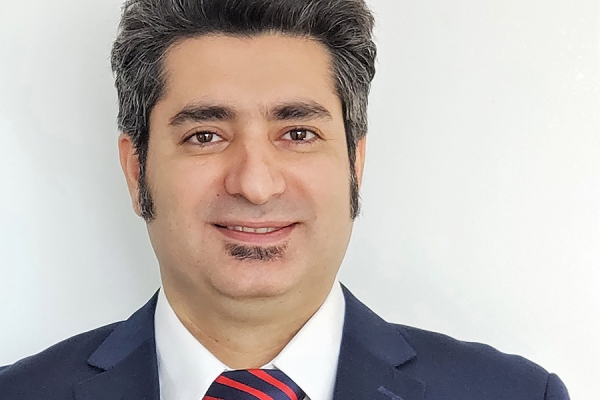 Professor Ali Saber of the School of the Environment is one of 11 new faculty members in science.
Professor Ali Saber of the School of the Environment is one of 11 new faculty members in science.
2023 is proving another fruitful year for new faculty members joining the Faculty of Science.
In addition to the four faculty members who joined in January 2023, and three in 2022, 11 more joined the science family this summer.
Today’s article introduces a range of researchers, starting with the Department of Mathematics and Statistics, assistant professor Edward Timko. Dr. Timko brings expertise in mathematical analysis with a specialization in operator theory. His research focuses on topics in multivariate operator theory and constrained families of operators.
The School of the Environment welcomes assistant professor Ali Saber. Dr. Saber’s research bridges science and engineering disciplines to evaluate the response of water resources to climate change and the release of anthropogenic contaminants, aiming to protect public health and increase the resilience of human communities against natural extreme events.
In the Department of Physics, assistant professor Caio Licciardi focuses his research on the fundamental properties and reasons why the universe exists and what it is. His team looks for new phenomena in nuclear and astroparticle physics by developing new and improved ways of detection using cutting-edge technology. More specifically, investigating neutrinos and the outstanding question of whether they are their own anti-particles, the so-called Majorana particles.
Muhammad Asaduzzaman, a new assistant professor in the School of Computer Science, brings research expertise in software engineering focuses on improving software systems by leveraging the large volume of information stored in software repositories. Dr. Asaduzzaman’s research is a blend of empirical theories and their associated tools to support software development tasks and to increase the productivity of developers.
Anna Kozarova joins the Department of Biomedical Sciences as an AAS Learning Specialist and program coordinator for the recently launched Honours Bachelor stream in Interdisciplinary Health Sciences, which connects undergraduate students from the Faculty of Science and the Faculty of Arts, Humanities, and Social Sciences and is based in three different departments – biomedical sciences, integrative biology, and psychology.
IHS students will explore challenges and grow as thought leaders who can tackle issues in many different health related areas, including, but not limited to, health care economics, Indigenous health, the global environment and climate change, and sustainable development.
The Department of Integrative Biology welcomes AAS Clint Jacobs. Jacobs is Anishinaabe from Bkejwanong; an Indigenous Knowledge Connector, his expertise is grounded in Indigenous-centered relationships.
In addition to building strategic relationships with Indigenous communities and weaving Indigenous ways of knowing through our course offerings, Jacobs will build and develop new and innovative initiatives to further Indigenous-focused knowledge co-production and lifelong learning across the Faculty of Science.
His work will support the creation of an Indigenized space for Indigenous students, community members and allies to engage, learn and create as well as foster partnerships in support of sustained and purposeful knowledge exchange and the eventual creation of an Indigenous research council. He will also lead courses related to Indigenous Natural Science and ecology.
“We are excited to welcome our new faculty who bring new research programs and teaching expertise,” says interim dean Dora Cavallo-Medved. “With our new faculty, we have also been able to expand our undergraduate and graduate programs while diversifying opportunities for our students to be engaged in the classroom, the lab and field.”
Tomorrow’s DailyNews will introduce the newest teaching intensive faculty in the School of Computer Science.